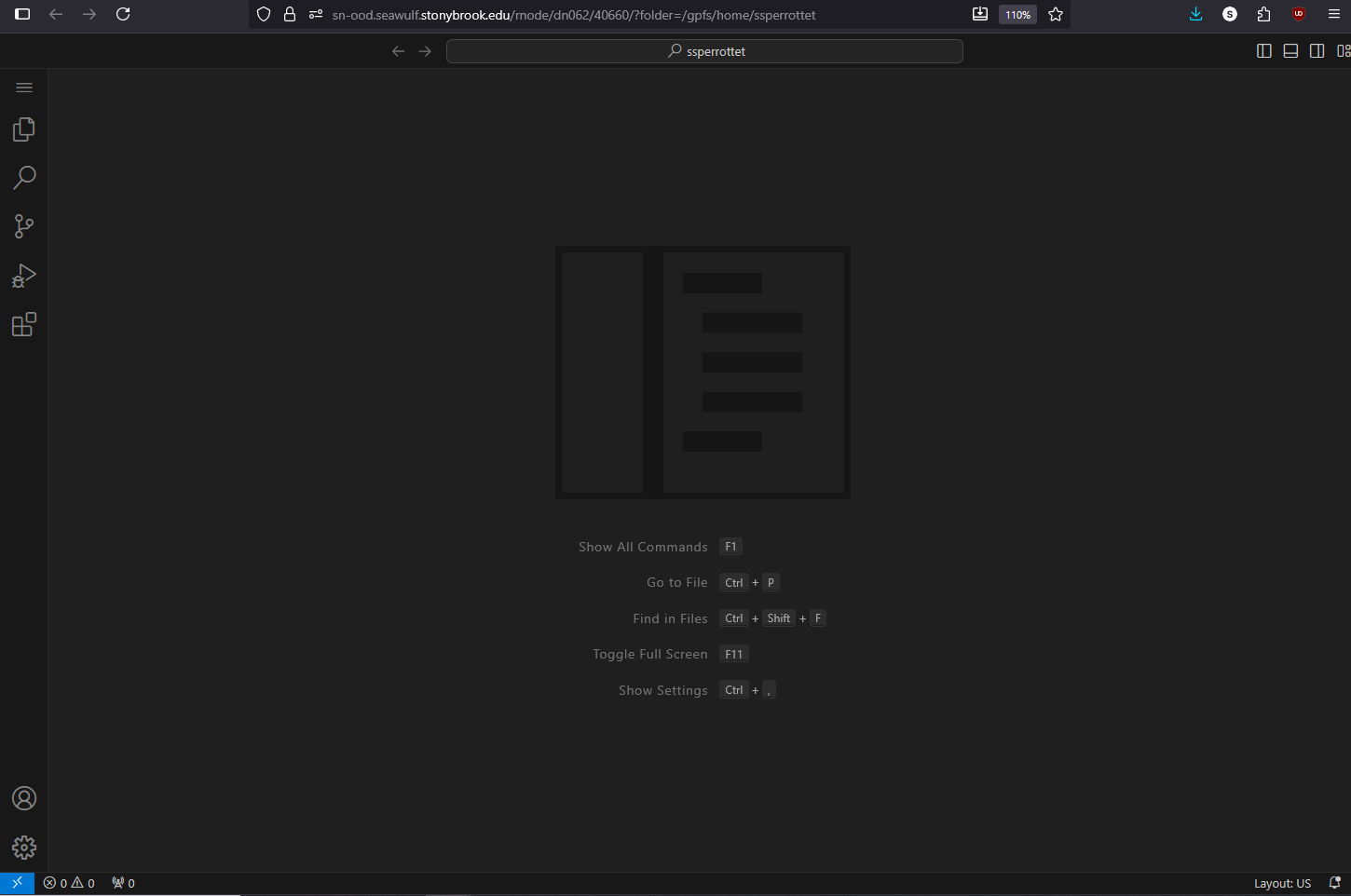Code Server is a web-based version of Visual Studio Code (VS Code) that lets you write, edit, and run code remotely on SeaWulf using your browser. It’s ideal for users who want a lightweight, interactive development environment without installing VS Code locally. You can access your home, scratch, and project directories, and use the integrated terminal for compiling and running code.
Getting Started
- Open the SeaWulf Open OnDemand portal: https://sn-ood.seawulf.stonybrook.edu/
- Log in using your NetID and DUO two-factor authentication.
- Launch Code Server:
- Click the Code Server icon on the main dashboard
- OR navigate to Interactive Apps → Code Server
Session Configuration
- Queue: Choose a queue suitable for your workload (e.g.,
short-40core-shared). - Cores: 1 core is usually sufficient for light editing; increase if compiling/testing.
- Time Limit: Set based on how long you plan to work.
- Nodes: Keep at 1 unless using parallel builds.
- Email Notification: Optional; will notify your Stony Brook email when the session starts.
Tip: Request only the resources you need to reduce queue wait times.
Click Launch to begin. Your session status will show Queued → Starting → Running. Once running, a new page will open with a VS Code interface and session controls.
Using Code Server
Once your session starts, you have access to a full VS Code environment:

File Management
- Open and edit files in your home, scratch, or project directories.
- Use the integrated file explorer to move, copy, and manage files.
Terminal & Compilation
- Use the integrated terminal for compiling code, running scripts, or executing commands.
- Commands behave as if you are directly logged in via SSH.
Extensions & Environment
- Some VS Code extensions are supported; install only what you need.
- Configure your shell profile, Python virtual environments, or other language-specific tools for development.
Important: Save your work frequently in home or project directories to avoid data loss.
Recommendations
- Close idle sessions to free up cluster resources for other users.
- Be mindful of CPU and memory usage to avoid long queue times.
- Verify extensions and tools are compatible with Code Server on SeaWulf.
Accessing Files & Collaboration
- Sessions are private; there is no shareable link like MATLAB.
- For collaboration, consider using Git or syncing code via scratch/project directories.
Example symlink to access scratch space from your home directory:
ln -s /gpfs/scratch/NetID /gpfs/home/NetID
Replace NetID with your actual NetID.

